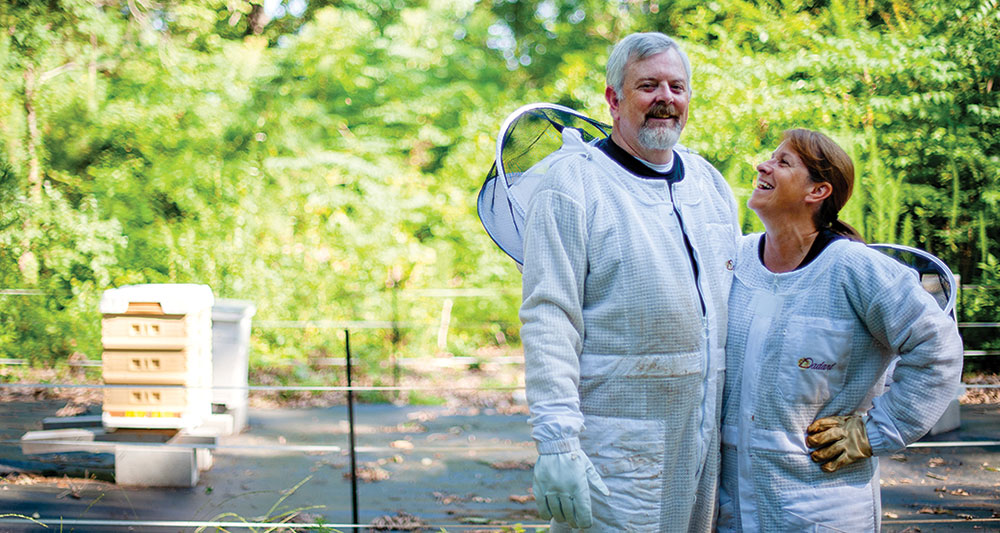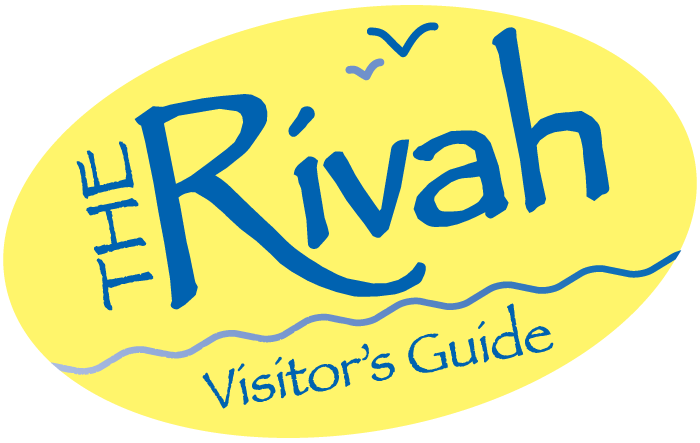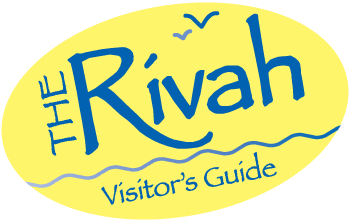
When hundreds of farmers from across the Commonwealth gathered in November for the Virginia Farm Bureau annual convention in Virginia Beach, they had the opportunity to taste something sweet from the Northern Neck. While the area has been long known for aquaculture and viticulture, Honey River Farm is working to make the area known for apiculture.
The farm, along the shore of the Rappahannock River near White Stone, was started in 2020 by partners Cyndi Knudson and Brian Clements, although preparations for the property and the hives began in 2018. Together they are making small batch pure and infused honey with flavors like cinnamon, ginger and orange. A hot honey infused with habanero and ancho peppers also is a popular item.
How the honey ended up as part of the luncheon’s salad dressing or the reception’s hot honey shrimp skewers was not only due to the hard work of the bees and beekeepers, but also with the help of the Virginia Foundation for Agriculture, Innovation and Rural Sustainability (VA FAIRS). The foundation has a mission of assisting “rural Virginians in developing and advancing their agricultural, economic and social interests” according to their website.
Knudsen said she first contacted VA FAIRS about help with a “value added producer grant” which she explained is “like a cost share program for small farm operations to take a commodity product they produce, which in our case is honey, and turn it into a value added product, which in our instance is the infused honey.”
“Their experience in reviewing these grants, and seeing what gets funded and how they are written was super helpful,” she said. Honey River ended up with the grant which helped them pay for supplies and marketing materials, like their website. “It gives you a boost to start selling,” said Knudsen.
In addition to the Farm Bureau convention, the foundation helped get Honey River featured at the 2023 Taste of Virginia, which is part of the State Fair of Virginia. “It was helpful from a marketing standpoint since they try to connect you to people who might want to sell your product in their retail shop,” she said.
They offer direct sales to customers through their website, but much of their focus has been on markets from Williamsburg and Urbanna to Colonial Beach, and of course locations in White Stone like Old Farm Truck and Miss Mary Seafood, said Knudsen.
It is proving to be a popular honey, especially because it is locally made. “We sell all of the honey our bees produce each year around April or May,” she said. While that may mean disappointed customers, it ensures that “the honey you’re buying, the bees made within a year.” That is important because as Knudson indicated, “honey stores forever, it doesn’t go bad, but the older it gets, the more it loses the subtle flavors. By getting fresh honey you’re getting a more distinctive flavor, the floral notes.”
As a Cooperative Extension specialist for North Carolina, Knudson is familiar with federal programs offered through USDA, but acknowledges that each state has very different ways of administering their agricultural programs. As Honey River plans to expand products in the coming years, she expects to continue to “look at other opportunities.”
That is advice she would give any other small farmer, especially when it comes to the legal requirements of agricultural products, “which can be a lot” and “may make it unworkable.” “Everyone should go down to the USDA Service Center and introduce themselves and talk to them about what they might have,” said Knudsen. “Go to your local county extension office and talk to them.”
In other words, take a lesson from the bees and develop those relationships to benefit the entire hive.


